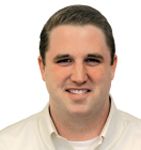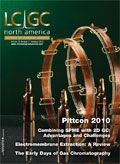A Bigger and Better Pittcon 2010 for LCGC
LCGC North America
Most readers of LCGC are no doubt familiar with the debate that has been going on within the field of analytical chemistry concerning the conference industry. Are in-person events becoming less popular? Will budget-tightening impact attendance significantly in 2010? And so on. While there is certainly some validity to the theory that in-person meetings in general are not as business-critical as they once were, to get an idea of how the staff of LCGC feels about this debate, one has only to look at the schedule of events we have planned for Pittcon 2010, set to run from February 28 to March 5 in the Orange County Convention Center in Orlando, Florida.
Most readers of LCGC are no doubt familiar with the debate that has been going on within the field of analytical chemistry concerning the conference industry. Are in-person events becoming less popular? Will budget-tightening impact attendance significantly in 2010? And so on. While there is certainly some validity to the theory that in-person meetings in general are not as business-critical as they once were, to get an idea of how the staff of LCGC feels about this debate, one has only to look at the schedule of events we have planned for Pittcon 2010, set to run from February 28 to March 5 in the Orange County Convention Center in Orlando, Florida.

David Walsh
Perhaps the biggest event planned is the LCGC/Spectroscopy Podcast Theater, set to run Monday, March 1 through Wednesday, March 3 at Booth 2805 in the convention center. A lineup of the industry's most respected and well-known experts will be speaking throughout the first two days of the theater, bringing listeners cutting-edge information on HPLC/UHPLC, GC, GC–MS and LC–MS, and spectroscopic techniques in general. The third day will be dedicated to the launch of LCGC's new online social networking and training site, CHROMacademy, and will also feature speakers from all corners of the chromatography field. We invite conference-goers to stop by the theater any time during these first three days of Pittcon. Morning sessions will run from 10–12 A.M., while afternoon sessions will run from 2–5 P.M., and free giveaways will be distributed to all who attend. When you add to this the Third Annual LCGC Awards press conference, to be held Monday at 2 P.M. in Room 303ABC, it is clear that LCGC's slate will be full at this year's Pittcon.
While the future of the conference industry may be the subject of debate for many, for LCGC, Pittcon 2010 promises to be the biggest and most elaborate in the 28-year history of the publication. For us, there really is no debate: Pittcon 2010 is still the biggest event in the field of separation science. We look forward to seeing you there.

David Walsh
Editor-in-Chief

Altering Capillary Gas Chromatography Systems Using Silicon Pneumatic Microvalves
May 5th 2025Many multi-column gas chromatography systems use two-position multi-port switching valves, which can suffer from delays in valve switching. Shimadzu researchers aimed to create a new sampling and switching module for these systems.
Studying Cyclodextrins with UHPLC-MS/MS
May 5th 2025Saba Aslani from the University of Texas at Arlington spoke to LCGC International about a collaborative project with Northwestern University, the University of Hong Kong, and BioTools, Inc., investigating mirror-image cyclodextrins using ultra-high performance liquid chromatography–tandem mass spectrometry (UHPLC–MS/MS) and vibrational circular dichroism (VCD).

.png&w=3840&q=75)

.png&w=3840&q=75)



.png&w=3840&q=75)



.png&w=3840&q=75)









